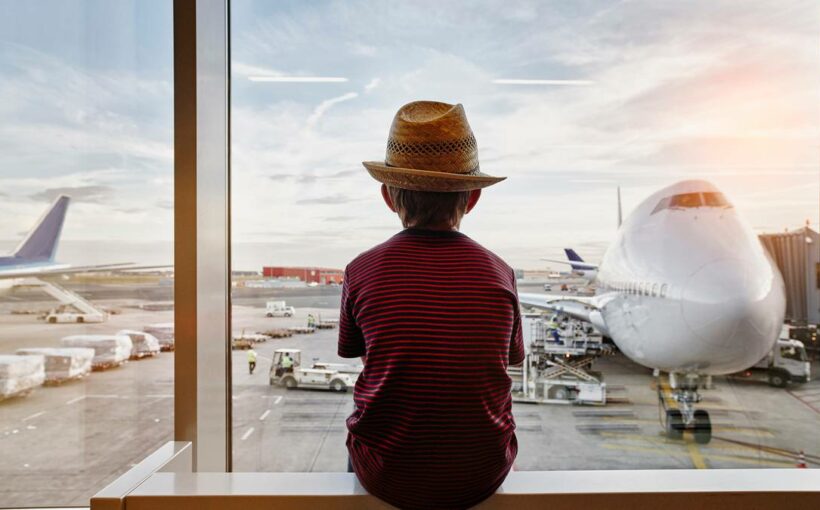OPINION:
Legal expert Jeremy Sutton answers pressing questions about how the law affects family decisions. In today’s column, he addresses the complexity of separated parents living on either side of the ditch during a global pandemic.
Q: My ex-husband has told me that he intends to take the kids to Queensland now that the travel bubble with Australia is opening. His sister lives there with her children so he wants them to visit their cousins. They have planned to go to the theme parks while they are there. I don’t want them to go. I’m worried they could catch Covid-19 or become stranded there if either country goes into lockdown. What can I do to stop him?
Jeremy Sutton: International travel can often cause disagreements between separated parents. Over the past year, this has not been an issue because of New Zealand’s strict border policy. However, the announcement a Trans-Tasman travel bubble will open on 19 April 2021 means that issue is now back on the table, but now with the additional complication of Covid-19.
Does your ex-partner need your permission?
Yes, your partner does need your permission if you share the care of your children. Whether you feel comfortable allowing your children to travel is a personal decision, but I would encourage you to have conversations with your children and your ex-husband. By having an open conversation with your ex-husband, you may be able to agree to particular safeguards that would make you feel more comfortable. For example, if your children are older, you could agree that the children will wear masks when in large crowds and while visiting the theme parks. You could also agree that your ex-husband will cover all cost incurred if they become stranded in Australia and that you would receive extra time with the children once they are home to make up for any delays.
Collaboration and compromise are important parts of any co-parenting relationship. It is possible that you may want to take the children overseas in the future. Your ex-husband will be more likely to say yes if you can agree to some of his ideas.
Preventing the children from travelling
If you are adamant that the children should not travel with their father, you may be able to prevent them from travelling. In all decisions that concern the children, their welfare and best interests will be the paramount consideration.
Your decision will be influenced by how old the children are and how long the children have been with their father, including whether they have previously had any overnight time. You may want to consult a child psychologist to help you in any decision making.
Order Preventing Removal
If you are concerned that your ex-husband will take the children to Australia without your permission, you could apply for an Order Preventing Removal. This Order will often be granted where there is a concern that one party will unilaterally decide to permanently relocate the children. If you are concerned that your ex-husband wants to remain in Australia with the children, it would be a good idea to apply for this order.
The Court could also order your ex-husband to pay a bond into Court or into a lawyer’s trust account. A travel itinerary may also be required.
An Order Preventing Removal may be granted if taking the children to Australia would breach a current parenting order. If an order is granted, the Court can order the that the children’s passports and travel tickets be handed over to the Court. Your ex-husband could oppose the Order.
Alternative dispute resolution
You and your ex-husband could try resolving your dispute through a Family Dispute Resolution provider (FDR). At FDR, a mediator will facilitate a discussion in order to reach an agreement. However, if you are both unwilling to compromise, you will be unlikely to reach a resolution.
Collaborative Law
This is another alternative dispute resolution method that will involve meetings between you and your husbands’ lawyer to reach a workable solution. To start this process, you and your husband will each need to engage collaborative lawyers.
Application to the Family Court
As a final resort, you could apply to the Family Court. Travelling internationally with children is a guardianship decision that needs to be decided together. However, when guardians cannot agree, the Court can decide the issue for you. In most circumstances, you will be required to have attempted FDR before applying to the Court.
The judge will make their decision based on what is in the welfare and best interests of the children. The Court will try to find out the views of the children and a Lawyer for Child will usually be appointed to ascertain and represent your children’s views.
Unless your child does not want to go, there are safety concerns or there is a risk that your ex-husband will not return to New Zealand, the Judge will probably allow their father to take them. The fact that the visit involves seeing family will weigh in favour of this decision.
Summary
Your ex-husband needs your permission to take the children to Australia. It would be best to try work out any of your concerns directly with him. You may be able to reach an agreement that would alleviate some of your fears. However, if you cannot reach an agreement, you could apply for an Order Preventing Removal. There is no guarantee that this order would be awarded. You could also try mediation through an FDR provider or apply to the Court as a last resort. To maintain a healthy co-parenting relationship and prevent conflict from affecting the children, try resolve matters between yourselves.
– Jeremy Sutton is a senior family lawyer, specialising in divorce cases where there are significant assets, including family trusts and complex business structures.
Source: Read Full Article
